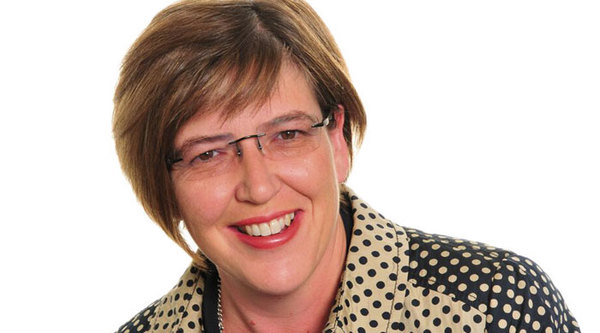In the modern world, it will prove very difficult for many of us to remember the last day we had where we did not encounter customer service in some form. Whether that be buying your lunch, shopping online or even going to the bank.
As something that permeates our lives so extensively it is often too easy to overlook, that is until it isn‘t there. Much like our health, we tend not to take any notice until something goes wrong.
Behind the scenes a staggering amount of time and effort is spent ensuring customer service doesn‘t go wrong, but with 70 per cent of the UK workforce in some form of customer-related role this is no mean feat.
Someone who has taken this challenge by the horns is Jo Causon, the head of the Institute of Customer Service.
“I have had the privilege, and it is a privilege, to run the institute for eight years. I personally am very passionate about this,” she told Retail Gazette.
“When I first came to the role, people used to think customer service as a bit pink and fluffy, as a bit ‘have a nice day‘ and a bit of a nice to have. It’s anything but that.
“I guess my role has been trying to help organisations see the economic value of it.”
There is good reason why businesses ranking in the top tiers of customer service are in similar positions financially. Far from being simply transactional, Causon believed good customer service and economic success are inextricably linked.
“Customer service is absolutely critical to the business performance of the UK and therefore to UK retail,” she said.
“We‘re not doing this just to be nice, there is an actual economic imperative, there‘s a definite correlation.”
“All of the research information that I have demonstrates a direct correlation between great customer experiences, great customer service and the long-term viability of an organisation.
“If we look particularly at retail, there is a direct correlation between customer satisfaction and sales growth. The organisations with higher levels of customer satisfaction have higher levels of sales.
“Customer satisfaction and customer experiences, we‘re not doing this just to be nice, there is an actual economic imperative, there‘s a definite correlation.”
Retail is leading the way when it comes to customer service. Retail food and retail non-food top the UK Consumer Satisfaction Index, both scoring more than four percentage points over the UK average.
Clearly great customer service is high on the agenda for retailers, but what makes this industry sector different from the others?
“Retail sectors are generally performing above other industry sectors. Historically they have continued to be at the top,” Causon said.
“It‘s highly competitive. If you look at supermarkets there is intense competition between them. So there‘s clearly an aspect of that.
“It‘s also something that we utilise every day, so we‘re constantly having a shopping experience. We‘re a nation of shoppers, we like to shop.
“What we‘re seeing is customer expectations going up, there is increasing pressure for us to make sure we‘re delivering great customer service. One of my fears is people will take their eye off the ball.”
READ MORE: Big Interview: Lynn Ritson, Global Ecommerce Director, Cath Kidston
The retail sector is well versed on the upcoming economic hurdles they‘re likely to face. Unfortunately when budgets are tight, sectors deemed non-essential are often overlooked. According to Causon, this could be a fatal error.
“As we enter a period of quite strong austerity, we‘re entering a period where people are thinking about what they‘re doing with their investments,” she said.
“What all my research actually indicates is where organisations take their eye of the ball, customer satisfaction will fall quickly.
“If it starts to fall it is a predictive indicator, it won‘t fall immediately, but over time their bottom line performance will actually be eroded.”
When budgets are tight, job cuts are also inevitable. A recent study by PwC predicted that 2.25 million retail jobs could be lost in the next 15 years, instead being handed to robots.
“Organisations who treat customer service as a key strategic driver in the boardroom… those are the organisations that survive.”
With the added pressure of rising wages, many retailers are saying the investment in automation is now cheaper than hiring staff to do the same job. By slashing menial jobs that could be performed by machinery, it is likely that retail roles will focus increasingly on customer interaction.
“With robotics and artificial intelligence and all of those sorts of things coming in, there will be a removal of a significant number of retail roles,” Causon added.
“I think this takes us back to what do we mean by customer service?
“If the roles are just purely transactional, then actually there‘s a lot of positivity about killing that from a customer point of view to make that more easy.
“Where there‘ll be an increase in real opportunity in what I call customer service roles are around genuine engagement.
“Really thinking about skills and capabilities like emotional intelligence, really making sure they can connect with people.
“I think it was New Look who interestingly put meeters and greeters at the front of their door. By having those people there they increased their basket spend quite considerably.
“Absolutely there will be things that will disappear because of robotics and AI, but those should be the transactional things. What we need to be thinking about is how can I add value from a relationship point of view.”
READ MORE: Big Interview: Francesca Romana Gianesin, Fashion & Lifestyle VP, Disney
This is precisely where organisations like the Institute of Customer Service come in, not just to educate leaders on how essential proper customer service is, but to ensure those on the shop floor know how to deliver it.
“For me customer service isn‘t just about the front line, it‘s about the whole experience and the end to end of the organisation.
“People often talk about customer experience being obviously very visible in the retail environment, whether that‘s online or offline, actually there‘s a whole lot of people that sit behind that.
“It‘s important to make sure every function, every department is genuinely linked. Making sure we don‘t see customer service just as a department or just as a necessity for the front line. Its everyones responsibility from the top of the organisation across.
“Organisations who treat customer service as a key strategic driver in the boardroom, and they‘re thinking about customer service between all of their teams, those are the organisations that survive.
“Our whole desire is to help our members get better at doing this because if they do then they‘ll get a better return.”
Click here to sign up to Retail Gazette’s free daily email newsletter




























